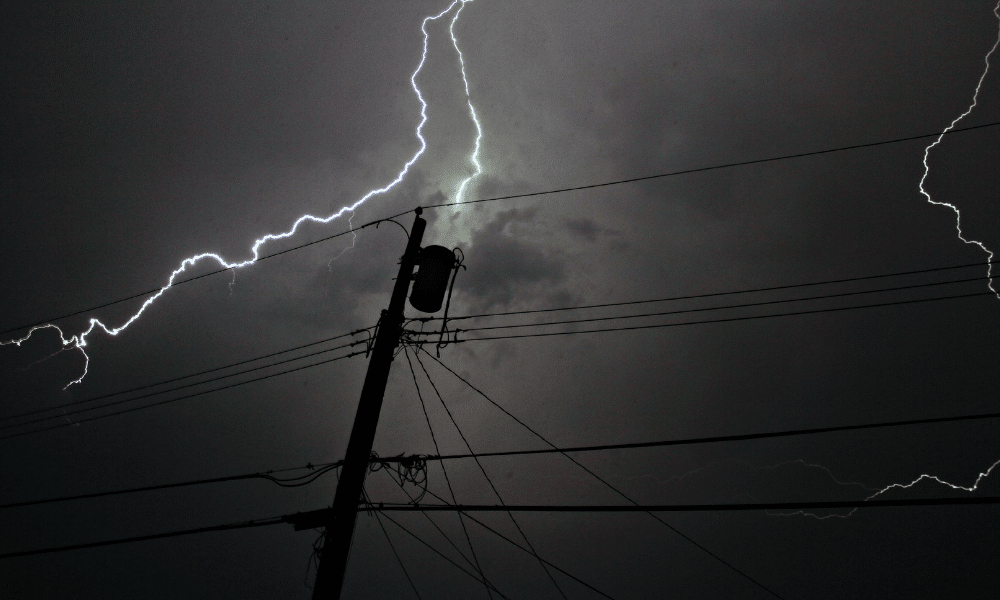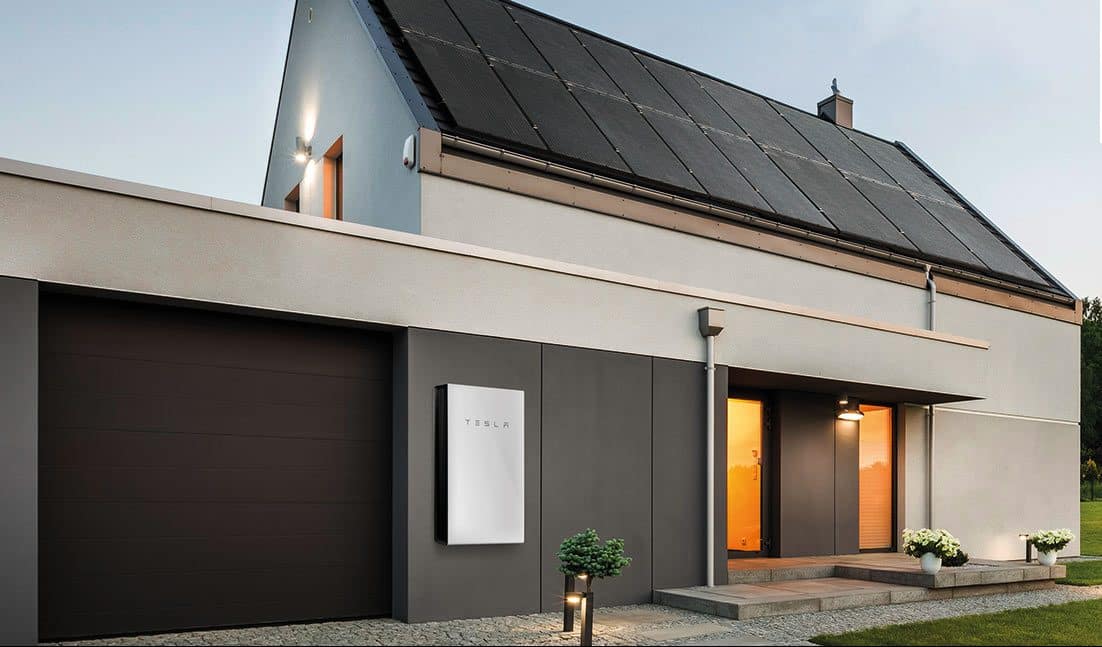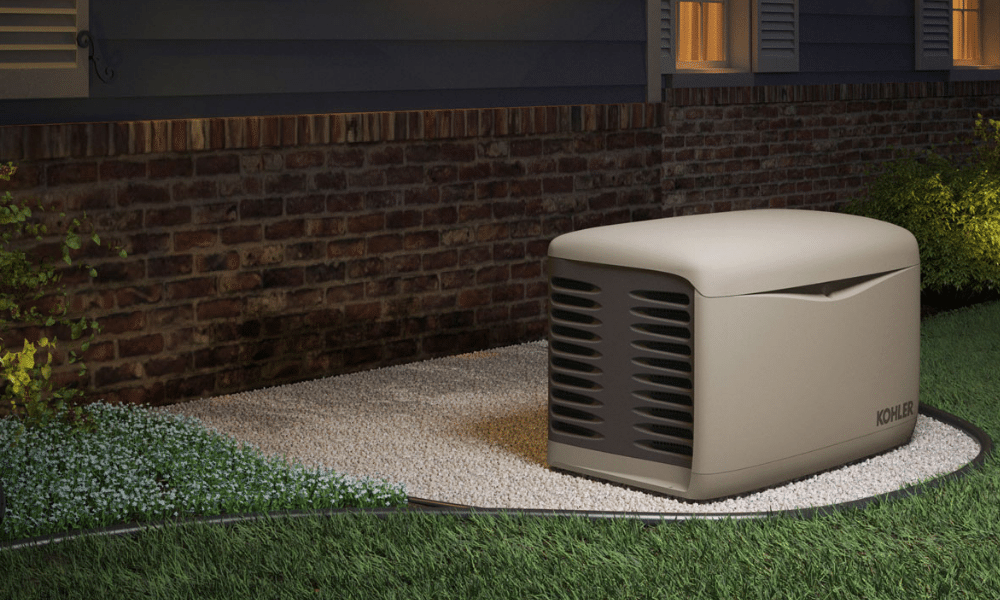Over the last few weeks, many states across Australia have been hit by severe thunderstorms, causing widespread blackouts.
Severe weather events (bushfires, storms, heatwaves, etc.) coupled with aging and outdated infrastructure is a sure recipe for power outages. Fortunately, home and business owners have the option of a backup power solution that will ensure lights, appliances, communications, and other systems continue running when the power goes out.
In this article, we’ll take a look at solar battery storage and power generators as two options for emergency backup power. We’ll compare in terms of their upfront costs, running costs, and environmental impact as well as their reliability when it comes to powering your home or business during an outage.

What is a solar battery storage system?
When many people think of backup power, they think of a portable or fixed standby generator. However, solar battery storage systems are an emerging alternative option for many households and businesses, especially if they already have solar panels.
Solar batteries store excess energy from solar panels for use when the sun isn’t shining or during a blackout. Not all solar batteries have backup functionality, so double-check with your supplier or the specification sheet.

What is a power generator?
If you’ve ever heard a low hum coming from a neighbour’s house when the power goes out, you were likely hearing the hum of a power generator. These are combustion-based generators that provide electricity by burning a fossil fuel like gas, diesel, or LPG (Liquefied Petroleum Gas).
Options range from small portable generators that you can pick up from your local hardware store to stationary standby units that can turn on automatically when an outage is detected.

Which option is better for emergency backup power?
When comparing solar battery storage and generators, let’s break down the factors that might be important to you.
Upfront cost
Solar batteries typically have a higher upfront cost than power generators, although this is dependent on the size and type of generator.
As a rule of thumb, solar batteries with backup functionality cost around $1,000 per kWh including installation and GST. Depending on whether the battery is AC or DC coupled, your solar system may also need a battery inverter to make use of the battery. Some DC batteries like the SENEC Home V3 are hybrid batteries that have a combined PV and battery inverter. AC batteries like the Tesla Powerwall 2 only need a solar PV inverter that solar owners will already have as part of their PV system. There may be government rebates and incentives available for solar batteries that can offset some of this cost.
There is far more variability in the cost of power generators, simply because there are so many types, brands, and models to choose from. A generator can range from a couple thousand for a portable diesel or petrol unit to over $15,000 for a permanently connected standby generator with a transfer switch for automatic operation.
Operating costs
Since generators are fuelled by consumables, they have ongoing operating costs. The cost of running a generator varies depending on its size and fuel type but can cost anywhere from $30 to $200+ to run over a 24-hour period.
Solar batteries are powered by the sun’s free energy and have no operating costs.
Environmental impact
When it comes to their environmental impact, solar batteries and generators are on opposite ends of the spectrum.
Generators are fuelled by dirty, carbon-intensive fossil fuels, producing harmful emissions like carbon monoxide, sulphur dioxide, nitrogen oxides, and soot particles.
In comparison, solar battery storage systems are powered by green energy. They do not produce harmful emissions or waste byproducts, making them a good choice for environmentally conscious homeowners.
Noise
Generators are notoriously noisy when in operation. Solar batteries, on the other hand, are virtually silent and won’t disrupt your day or night-time activities.

Maintenance
Solar batteries require no regular maintenance which is in stark contrast to standby generators, which require regular servicing and often need parts replaced annually.
Warranty
Solar batteries are usually guaranteed under warranty for 10 years, although some models offer extended warranties up to 25 years.
While it varies by brand, type, and model, most standby generators will offer a 5-year or (x amount of) operating hours warranty, whichever occurs first. Portable generators usually have a shorter warranty than standby generators designed to power an entire home.
Reliability
If you live in an area prone to prolonged power outages or need a consistent, reliable source of power that can provide days of uninterrupted supply, then you can rule out small portable petrol generators. These units will require refuelling every few hours and cannot be refuelled while they are running or still hot. A larger diesel or gas standby generator should be able to run continuously for days, if not weeks. These larger systems can also power your whole house or business, so you won’t need to use electricity too sparingly.
One downside is that, during extreme weather events, affected regions will sometimes experience fuel supply shortages and price spikes. This means you may not be able to find fuel for your generator when you need it most.
When it comes to solar batteries, their running time will depend on the charge of the battery before the outage occurred, as well as how much storage capacity is available in the battery. It also depends on what you are running on it. If you have a few lights on and you’re watching TV or doing some cooking, a fully charged battery will last about 12-13 hours. But as soon as you add a big power consumer, like air-conditioning or a dishwasher, you are going to drain the battery in only a few hours.
To ensure the safety of linesmen, solar inverters shut down when the grid goes down. This means that solar panels are unable to produce electricity or charge your battery during an outage. There is, however, the option of a hybrid solar system that allows you to switch to an “off-grid” mode so you can still use your solar panels throughout the day and discharge your batteries at night.
Even so, standby generators have the slight upper hand when it comes to reliability during a prolonged outage.
Versatility
While this is not related to their performance during an outage, it’s worth considering what both options offer outside of backup functionality so that you can compare the overall value of each option.
While stationary generators may be limited to providing backup power, portable generators are versatile machines that can be used on construction sites, for tailgating and camping, at events, or anywhere that can’t be reached by an extension cord.
While their backup functionality is handy, a solar battery’s prime function is to store excess energy generated during the day so you can use it at night. This helps homeowners reduce the amount of electricity they buy from utilities during peak hours (when everyone’s running their appliances and watching TV). Batteries can also charge Electric Vehicles (EV) during the night.

Verdict
As you can see, there’s no clear-cut answer to the question of whether solar batteries or generators are better for backup power — it all comes down to your specific preferences and needs!
Solar battery storage systems are our personal choice as they offer a cleaner, greener alternative to power generators but they come at a higher initial cost which may put them out of reach for some. Generators, on the other hand, usually cost less to purchase but have high operating costs and produce harmful emissions during operation.
Outside of the budget, probably the most important consideration when choosing between a battery or standby generator is determining how much power your home or business will need during a blackout.
Qualified professionals can assist you with correctly sizing your generator or solar battery to suit your needs.
Energy Matters has assisted over 30,000 Australians in their transition to clean energy. We can guide you toward a solar and/or battery storage solution that fits your lifestyle and budget. Receive up to 3, obligation-free solar quotes from our trusted network of accredited solar installers in Brisbane. It’s fast, free, and takes the hassle out of shopping around.











































